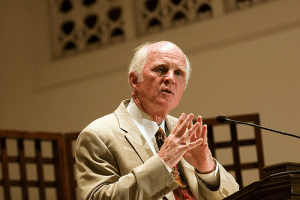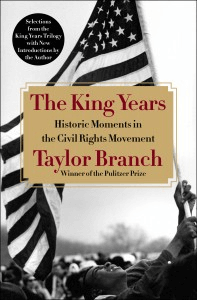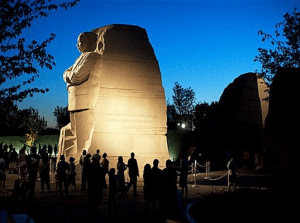Taylor Branch, the Pulitzer Prize winning biographer of the Rev. Martin Luther King and the American Civil Rights movement; recently told a bookstore audience that “the Sixties and the Civil Rights movement captured my interest against my will …”
Branch, 67, was speaking to an audience at the Ivy Book Shop on Falls Road in North Baltimore, not far from his Mount Washington home. Part of the Ivy’s “Baltimore Masters Series,” Branch was interviewed by Maryland Humanities Council director Phoebe Stein a week before this year’s MLK holiday.
The hour-long discussion, with questions from the audience on everything from NSA spying to the death that week of Phil Everly, was grounded in Branch’s new book, a sort of greatest hits of his Civil Rights trilogy called: “The King years, Historic Moments in the Civil Rights Movement.”
A one-time pre-med student and promising high school athlete, Branch didn’t give much thought to civil rights – and with it, serious writing – until 1969, a year after Dr. King’s assassination in Memphis.
“The movement had passed,” he said. Branch began his field work – not knowing that it would lead to a literary career – by working to register black voters in far southern Georgia, his home state.
If Branch was a bit anxious about the work, the African-Americans he was trying to register were “terrified” of repercussions to come after the simple, Constitutionally-guaranteed act of registering to vote.
His breakthrough? Persuading the mid-wives of deep Georgia to work as his ambassador.
The mid-wives’ argument with their reluctant neighbors was straightforward, said Branch, as good a storyteller in person as he is on the page.
“Yes, you are coming to meet this white fellow [who is trying to help us],” he recalled them saying. “You’re going to do it because I birthed everybody in your family.”
After each day’s work, he would come home and write in his journal, a discipline that became “The South Georgia Cornfield Diaries” and soon he would leave behind yet another possible identify –the young man who thought he’d become a political philosopher – for the life of a storyteller.
“When we are nervous,” he said of the lessons of the diary. “We learn not by ideas but personal experiences. It is personal experience that dissolve” our prejudices.




Leave A Comment